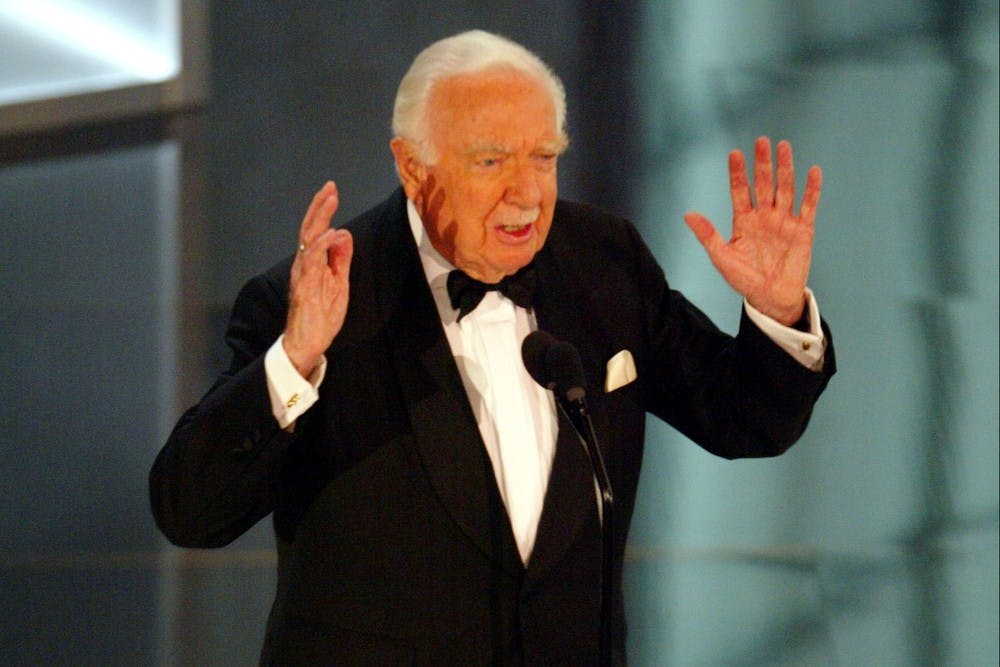In 1994, Edward Murrow was honored with a postage stamp for his extraordinary and groundbreaking work in the world of journalism. Murrow was on air with CBS for 19 years doing radio broadcasts from the rooftops of London during the German Blitzkrieg and hosting the news show “See It Now.”
Murrow set the standard for the broadcast journalists of his time, with an award appropriately named after him, until a man named Walter Cronkite came around and changed the way the American public consumed their news.
It’s been 34 years since Cronkite’s final broadcast and over six since his passing; it’s about time the most trusted man in America and the ASU journalism school's namesake gets his own commemorative stamp.
Appropriately, the Cronkite School announced it would support the campaign to get Cronkite a stamp to commemorate his 100th birthday on Nov. 4, 2016.
Arizona State University’s Cronkite School is joining the efforts of the Society of Professional Journalists and the Radio Television Digital News Association to honor Walter Cronkite with a postage stamp.
Posted by Walter Cronkite School of Journalism and Mass Communication on Monday, October 26, 2015
However, it baffles me that it took this long to even start the discussion of getting him a stamp. The man was respected in nearly every household in America and was even named “Uncle Walter.” His innovative way of storytelling influenced the way American households watched the news. Because of how strong of a following and credibility he had built up in his career, he is often credited with influencing major events in American history.
Some of his most popular moments include his strategy to break the AP wire of former President Kennedy’s death, but not confirming the story until he had enough sources. He is also renown for exposing the horrors of the Vietnam War, essentially ending it after former President Lyndon B. Johnson said “If I’ve lost Cronkite, then I’ve lost the country.”
This extraordinary man practically shaped our country into the always-questioning public eye that has exposed scandals like the Pentagon Papers, Watergate and NSA phone-tapping strategies. I shudder at the thought of what this country would be like without Walter Cronkite at the helm of the media in arguably the most important 30 years this country has endured.
In all honesty, I don’t think it’s going to be very hard to get Cronkite a postage stamp. If his predecessor, Murrow, got one then he is almost a shoo-in. This is also an opportunity to raise more awareness to the fact that the Walter Cronkite School of Journalism and Mass Communication is just as good, if not better, than other prestigious journalism schools like Newhouse at Syracuse and Medill at Northwestern.
No matter what, Cronkite was one of, if not the most, influential man in American media history and deserves a postage stamp immediately. And that’s just the way it is.
Related Links:
Walter Cronkite's legacy continues at journalism school five years after death
Despite rankings, Cronkite trumps top competition in value
Reach the columnist at abkbundy@gmail.com or follow @abkbundy on Twitter.
Like The State Press on Facebook and follow @statepress on Twitter.
Editor’s note: The opinions presented in this column are the author’s and do not imply any endorsement from The State Press or its editors.
Want to join the conversation? Send an email to opiniondesk.statepress@gmail.com. Keep letters under 300 words and be sure to include your university affiliation. Anonymity will not be granted.




